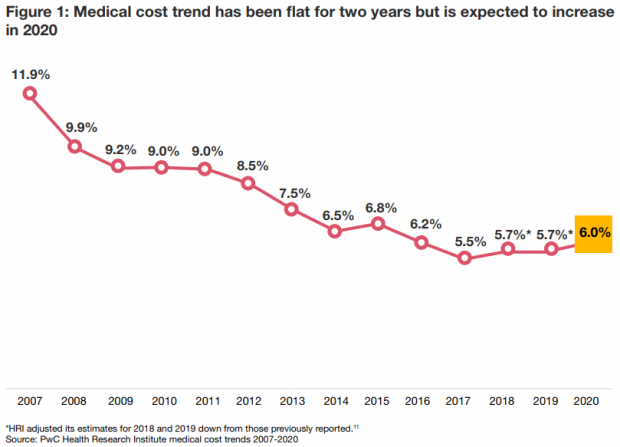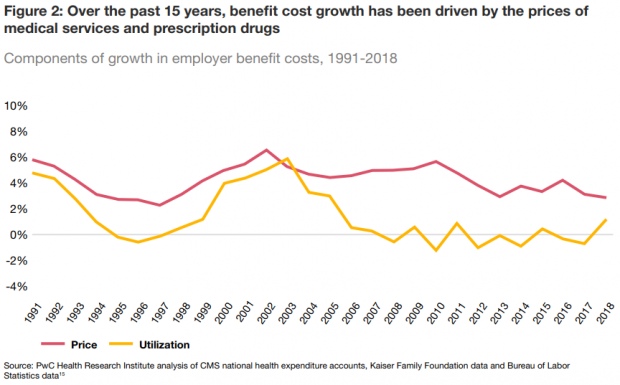Americans’ frustration with rising health care costs has always extended to companies as well — and those businesses may now be ready to assert themselves more forcefully to try to get results, according to a new report from the PwC Health Research Institute (HRI).
Employers face a faster rise in costs: The report projects that employer health costs will rise 6% next year, slightly faster than over the past two years, despite businesses’ continued efforts to control costs by passing them on to workers and shifting to high-deductible health care plans that have left employees unhappy. (HRI found that at least a third of individuals and families with an employer-provided high-deductible plan said they don’t have enough money saved to pay their deductible.)
Factoring in increased employee cost sharing and health plan changes, employers still face a 5% increase in costs, the report says — and businesses feel they can’t ask their employees to bear much more at this point.
It’s the prices, stupid: The report also notes that higher health care spending continues to be driven by rising prices more than increased use, with a separate HRI study published earlier this year finding that use of medical services by individuals with employer-based insurance decreased by 0.2% from 2013 to 2017 — while prices rose 17% over that time.
So we may have reached a breaking point of sorts: “More employers are taking matters into their own hands, becoming what HRI terms ‘employer activists.’ These new employer activists are taking bold new steps in their efforts to contain costs. They are negotiating contract prices, setting up their own provider networks and, in some cases, building parallel health systems to take care of their own employees at more manageable costs,” the report says.
It adds that “2020 likely will be, in some ways, a turning point in the long arc of employer-sponsored insurance, a year in which more employers fight back using new tools and strategies to control the ever-growing costs to their own organizations, their employees and their families. Dissatisfaction with the system is widespread among all stakeholders, and there is a sense among employers that it is time to think creatively and broadly about changing the system.”
And employers could use their power to really shake things up: In an interview with HRI, Michael Thompson, president and CEO of the National Alliance of Healthcare Purchaser Coalitions, said that, “If market-based solutions don’t work, employers may push for healthcare to be regulated like a public utility.” Warnings like that are bound to get the attention of just about every player in the health care industry.







